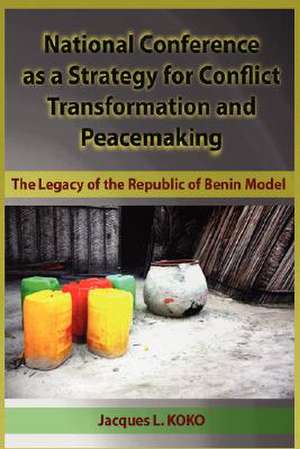National Conference as a Strategy for Conflict Transformation and Peacemaking: The Legacy of the Republic of Benin Model (Hb)
Autor Jacques L. Kokoen Limba Engleză Hardback – 29 feb 2008
Preț: 410.25 lei
Preț vechi: 445.91 lei
-8% Nou
Puncte Express: 615
Preț estimativ în valută:
78.50€ • 82.18$ • 64.95£
78.50€ • 82.18$ • 64.95£
Carte tipărită la comandă
Livrare economică 07-21 aprilie
Preluare comenzi: 021 569.72.76
Specificații
ISBN-13: 9781905068876
ISBN-10: 1905068875
Pagini: 220
Dimensiuni: 152 x 229 x 16 mm
Greutate: 0.49 kg
Ediția:New.
Editura: Adonis & Abbey Publishers Ltd
Locul publicării:United Kingdom
ISBN-10: 1905068875
Pagini: 220
Dimensiuni: 152 x 229 x 16 mm
Greutate: 0.49 kg
Ediția:New.
Editura: Adonis & Abbey Publishers Ltd
Locul publicării:United Kingdom
